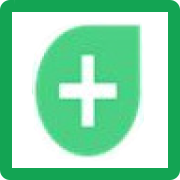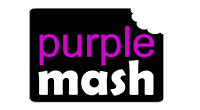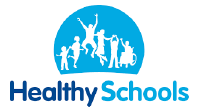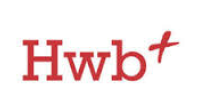Lower School 2023 - 2024
Mrs Breeze
'Welcome to our Lower School Department'
Here is an outline of how our department is organised, a brief explanation of how we work and the curriculum we follow. Parents are invited to call if they have any queries or are worried in any way about their child and the time they spend in the department.
There are 4 classe and class sizes vary from eight to twelve pupils.
Dosbarth Alwen is now a designated autism class and will follow a 'Semi Formal' curriculum and they will have the opportunity to engage with the therapies that take place in the Sensory Department.
Pupils generally stay within their class group for teaching. Mixed groups of learners may be organised for specific timetabled sessions according to ability and need.
Pupils are aged between 11 and 14 years of age. Pupils build on the work they have undertaken at Pen Coch to enhance their skills, personal development and prepare for increased personal responsibility and interactions within the community.
All pupils have an Personal Learning Goals ( plan) PLG which are drawn up by teachers, therapists, support staff, family and pupils. Targets are measurable, achievable and challenging and included into medium term plans. Plans are evaluated at the end of each term and a report sent home to parents. New targets are set for pupils at the beginning of each term.
Curriculum
A range of teaching strategies are employed - whole class teaching, individually directed teaching and activities which promote independent learning.
Four Purposes of Learning
The 4 purposes will be at the heart of our new curriculum. They will be the starting point for all experiences, supporting our young people to be:
- ambitious, capable learners ready to learn throughout their lives
- enterprising, creative contributors, ready to play a full part in life and work
- ethical, informed citizens of Wales and the world
- healthy, confident individuals, ready to lead fulfilling lives as valued members of society.
Key elements
The new curriculum will include:
- 6 Areas of Learning and Experience from 3 to 16
- 3 cross curriculum responsibilities: literacy, numeracy and digital competence
- progression reference points at ages 5, 8, 11, 14 and 16
- achievement outcomes which describe expected achievements at each progression reference point.
The curriculum will be organised into 6 Areas of Learning and Experience:- Expressive arts
- Health and well-being
- Humanities (including RE which should remain compulsory to age 16)
- Languages, literacy and communication (including Welsh, which should remain compulsory to age 16, and modern foreign languages)
- Mathematics and numeracy
- Science and technology
Curriculum Cymreig is an integral part of the whole school policy for curriculum.
Creative Curriculum
The Creative Curriculum is inspirational both pupils and for teachers. It makes learning motivational and successful for all involved. At it's heart the creative curriculum is skills based and knowledge supported. It includes not only what to study but also how to study.
Planning begins with an understanding of the key skills to be developed and the content is selected to support these. All the skills that are developed enable pupils to become good communicators, problem solvers , encourages them to work well with others and ultimately improve their own learning performance.

One Page Profiles
We believe that one-page profiles are the foundation of personalisation, and can lead to positive change for people, whatever their age or circumstances. They provide us with an at-a-glance way of knowing what really matters to people, that can be taken with them as they move through services and come into contact with people.
What is a One Page Profile?
A One Page Profile captures all the important information about a person on a single sheet of paper under three simple headings: what people appreciate about me, what’s important to me and how best to support me.
One Page Profiles are deceptively simple, and in this simplicity lies their strength. They help us to support people better by:
- Helping us build better relationships by truly understanding what really matters to the person in their life and the way they are supported to live it
- Providing a record that can move with the person as they transition from service to service or use multiple services
- Being regularly updated to reflect people’s changing circumstances and aspiration

Positive Behaviour Plans
What is a Behaviour Support Plan?
A behaviour support plan is a document created to help understand and manage behaviour in pupils who have learning disabilities and display behaviour that others find challenging. The plan contains a range of strategies which not only focus on the challenging behaviour(s) but also include ways to ensure the pupil has access to things that are important to them. Teachers will send this plan to parents to ensure consistency of approach. Parents are required to sign and return the plan to school. Plans are reviewed regularly and teachers will always inform parents when incidents may occur at school.
Annual Reviews
As your child has a statement of SEN, you will be asked to take part in a review of the statement at least once a year. This is to look at how well your child is doing and whether they are getting the right help. The review meeting will look your child’s progress in relation to the objectives in the statement and will be attended by the class teacher and other professionals. The ALN Reforms are underway and pupils are the process of being moved from the old system to the new system which is now called an IDP, Individual Development Plan.

Class teachers will send homework home on a regular basis. There will be English and Maths every week with additional subject areas shared on a timetable basis.
School and homework show pupils the important life lessons, such as how to read and communicate with others, that they will use as an adult. Homework also teaches pupils how to problem solve, think independently, and build an understanding and interest for the issues in our society

Pupils can 'earn' merits for their hard work and all their achievements. We also have 'Star of the Week', which is awarded in assembly every week.This encourages pupils to work hard and enables them to contribute to their 'houses' which is celebrated at the end of each term.

Our assemblies, which include our Acts of Worship are an important feature of our school's life. They act as one of the main ways by which we create our positive reflective ethos and promote our values-based education. Pupils share an assembly each Friday afternoon and cover a wide range of topics linked to current affairs and key events that happen throughout the year.
Files to Download
Lower School: School Calendar items
There are no School Calendar items to display










